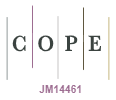Self-cultivation and the education of sensibility in Waldorf pedagogy
DOI:
https://doi.org/10.5585/eccos.n53.16638Keywords:
Bildung, Aesthetic education, Goethe, Waldorf pedagogy.Abstract
This article discusses the role that aesthetic experience and human sensitivity play within the educational parameters of Waldorf Education, from the approach of the philosophy of education. The paradigm break occurs in the emphasis and valorization of human experience, as a source of experiences that enrich the world of sensations and feelings to support the human being's cognitive life. Steiner was inspired by Goethe's phenomenology to found his conception of education and valued the development of sensibility as ideal for human formation (Bildung). Sensitibility education is an important factor both in the self-cultivation (Selbstbildung) of teachers and in the education of children and young people. The key element in understanding aesthetic education is not what is taught, but how.
Downloads
References
AGAMBEN, G. Infância e história: destruição da experiência e origem da história. Belo Horizonte: Editora UFMG; 2005.
AVISON, K.; RAWSON, M. The tasks and content of the Steiner-Waldorf
curriculum. Edinburgh, Escócia: Floris Books, 2016.
BACH JR., J. Fenomenologia de Goethe e educação: a filosofia da educação de Steiner. Curitiba: Lohengrin, 2019.
BAITELLO JR., N. O pensamento sentado: sobre glúteos, cadeiras e imagens. São Leopoldo (RS): Editora Unisinos, 2017.
DALBOSCO, C.A.; MÜHL, E.H.; FLICKINGER, H.-G. (orgs). Formação humana (Bildung): despedida ou renascimento? São Paulo: Cortez Editora, 2019.
DEPRAZ, N. D’une science descriptive de l’expérience em premiere personne: pour une phénoménologie expérientielle. Studia Phaenomenologica, Romanian Society for Phenomenology, v.13, 2013. p.387-402.
FLICKINGER, H.-G. Herança e futuro do conceito de formação (Bildung). Educação & Sociedade, Cedes/Unicamp, Campinas, v. 32, n. 114, jan-mar, 2011, p. 151-167.
GUERRA, M.G.M. Possibilidade de humanização da escola, o diálogo e a educação integral. In: BACH JR., J. (org.). A educação Waldorf no século XXI. Curitiba: Lohengrin, 2019. p.7-21. Disponível em: http://frs.edu.br/biblioteca/. Acesso em: 20/02/2020.
GOERGEN, P. Bildung ontem e hoje: restrições e perspectivas. In: DALBOSCO, C.A.; MÜHL, E.H.; FLICKINGER, H.-G. (Orgs). Formação humana (Bildung): despedida ou renascimento? São Paulo: Cortez Editora, 2019. p.15-34
GOETHE, J.W. von. Os anos de aprendizagem de Wilhelm Meister. São Paulo: Ensaio, 1994.
GOETHE, J.W. von. Escritos sobre arte. São Paulo: Associação Editorial Humanitas, São Paulo: Imprensa Oficial do Estado de São Paulo, 2005.
GOMES, L.O.; AQUINO, L.M.L. de. Crianças e infância na interface da socialização: questões para a educação infantil. EccoS – Revista Científica, São Paulo, n.50, e14092, jul/set. 2019. Disponível em: https://doi.org/10.5585/EccoS.n50.14092. Acesso em: 10/02/2020.
HEIDEGGER, M. Ser e tempo. Petrópolis, RJ: Vozes; Bragança Paulista, SP: Universidade São Francisco: 2005.
KUHN, T.S. A estrutura das revoluções científicas. São Paulo: Editora Perspectiva, 1998.
MARANGON, M.L. A formação humana em Goethe na obra: Os Anos de Aprendizagem de Wilhelm Meister. Programa de Pós-Graduação em Educação. Universidade de Passo Fundo (RS), 2018. 214 p. Tese de Doutorado.
RITTELMEYER, C. Bildende Wirkungen ästhetischer Erfahrungen: wie kann man sie erforschen? [Efeitos formadores das experiências estéticas: como podemos pesquisá-los?] Weinheim (Alemanha): Beltz Juventa, 2016.
SOETEBBER, J. Erkenntnispraxis als umbildende Erfahrung – Goethes Begriff von Selbstbildung [Práxis do conhecimento como experiência remodeladora: o conceito de Goethe de autoformação]. RoSE – Research on Steiner Education, Oslo (Noruega), Vol.7, nº 1, July, 2016. p.14-21. Disponível em: https://www.rosejourn.com/index.php/rose/article/view/330. Acesso em: 05/02/2020.
STEINER, R. Der menschliche und der kosmische Gedanke. [O pensamento humano e cósmico] Dornach (Suíça): Rudolf Steiner Verlag, 1990.
STEINER, R. Arte e estética segundo Goethe: Goethe como inaugurador de uma estética nova. São Paulo: Antroposófica, 1998.
STEINER, R. O método cognitivo de Goethe: linhas básicas para uma gnosiologia da cosmovisão goethiana. São Paulo: Antroposófica, 2004.
STOCKMEYER, E.A.K.. Rudolf Steiner’s Curriculum: for Steiner-Waldorf
schools: an attemp to summarise his indications. Edinburgh, Escócia: Floris Books, 2015.
TRAUB, H. Ich und Du: Aspekte zu einer Theorie der Interpersonalität in Rudolf Steiners Philosophie der Freiheit [Eu e Tu: aspectos para uma teoria da interpersonalidade na Filosofia da Liberdade de Rudolf Steiner]. Research on Steiner Education (RoSE), Oslo (Noruega), Volume 10, nº1, p.1-20, 2019. Disponível em: https://www.rosejourn.com/index.php/rose/article/view/498. Acesso em 09/02/2020.
Downloads
Published
How to Cite
Issue
Section
License
Copyright (c) 2020 EccoS – Revista Científica

This work is licensed under a Creative Commons Attribution-NonCommercial-ShareAlike 4.0 International License.






